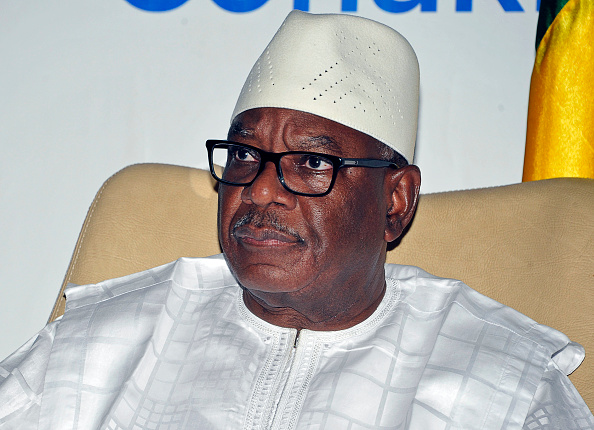Bamako – Mali’s former president Ibrahim Boubacar Keita, who died on Sunday aged 76, became the symbol of the poor Sahel country’s political turmoil after his unpopularity spurred his ousting in a military coup in August 2020.
The mutinous soldiers quickly arrested the leader known by his initials IBK, who had steadily lost his grip as the landlocked West African state became increasingly beset by jihadist attacks and inter-ethnic violence.
Keita, who was elected in a landslide in 2013 and won re-election five years later, had long relied on an uncompromising image to project command over the coup-prone country of 19 million people.
He had been able to shrug off criticism from a divided opposition, partly relying on support from the international community — notably former colonial power France – which saw him as a bulwark against the jihadist threat.
ALSO READ | Mali ex-president Ibrahim Boubacar Keita dies aged 76, his family says
But in addition to the violence that has claimed thousands of lives and displaced hundreds of thousands more, snail-paced political reforms, a flagging economy, decrepit public services and a widely shared perception of government corruption also fed anti-Keita sentiment, driving masses of protesters into the streets.
Keita’s son Karim, who had a reputation as a playboy, also fueled popular anger, and he ended up resigning as head of the parliamentary defence committee.
The coronavirus pandemic and the kidnapping of opposition leader Soumaila Cisse by jihadists in March 2020 made further inroads into Keita’s standing.
Cisse died in December 2020 of Covid.
Generous, irascible
The political veteran was described variously by his entourage as generous, irascible and divisive.
The son of a civil servant, Keita was born in the southern industrial city of Koutiala, the declining heartland of cotton production.
After studying literature in Mali, Senegal and France – his great-grandfather was a French colonial soldier who died in the Battle of Verdun in World War I – Keita became an adviser for the EU’s overseas development fund before heading a development project in northern Mali.
ALSO READ | Malians out in force after junta calls protests over sanctions
He campaigned against general Moussa Traore, Mali’s former president ousted in 1991 by a military coup.
He then rose through the ranks under Alpha Oumar Konare, the country’s first democratically elected president.
As a socialist prime minister between 1994 and 2000, he quelled a series of crippling strikes, earning a reputation as a firm leader and helping to set up his runaway election victory in 2013 – when he finally ascended to the presidency after losing runs in 2002 and 2007.
He had campaigned as a unifying figure in his fractured country, belying his tough-talking reputation. Keita was re-elected in 2018, defeating Cisse.
Follow African Insider on Facebook, Twitter and Instagram
Source: AFP
Picture: Getty Images
For more African news, visit Africaninsider.com


